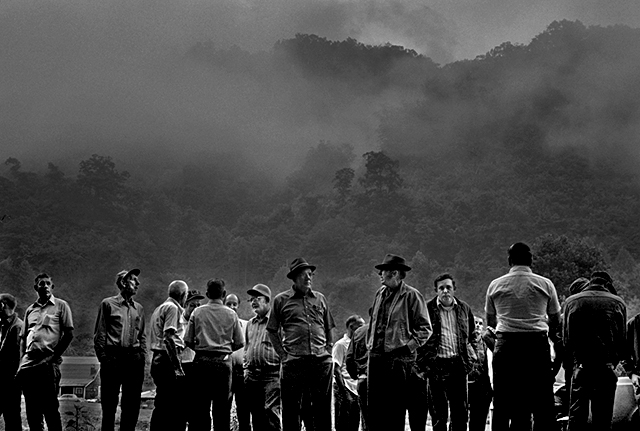A message to the future of Appalachia
By Elizabeth Catte
In late February, I gave a talk at West Virginia University. I was honored to be invited and felt that it was important to directly address young people for two specific reasons. The first is that JD Vance, who is known for many things that are the opposite of youth empowerment, spoke at the university a week before me. The second is that I came to West Virginia in the middle of its historic strike. Education and public workers cited many reasons for their collective action, but one that wasn’t receiving wider purchase in the national conversation about the strike at that time was the deep conviction teachers’ had for envisioning a better future for their students. I wanted them to know their solidarity was seen, and felt. Jessica Salfia, an English teacher, wrote from that perspective here.
As you may know, a small cohort within the Appalachian Studies Association invited JD Vance to speak at our most recent conference and participated in the abuse of young members who stood in dissent. There are many things I want to and will likely say about that, but for the moment, I am going share part of the remarks I made at West Virginia University. For them. For us. For the future.
My book is called What You Are Getting Wrong About Appalachia and people like to speculate who the “you” is in the title. Is it JD Vance, his fans and supporters? And they’re not wrong – that is definitely the direction in which the book started. But as it developed, I started to see that the “you” was me and that I was writing against an experience where people with more power tried to tell me what I should think and feel about my history and identity. They were happy to tell me what I was getting wrong about Appalachia, and usually the thing I was getting most wrong, according to them, was that there was any hope for the future.
“Coal is dead. Just move. I hate that you’re stuck there. If it wasn’t for welfare there wouldn’t be any signs of life in the mountains.” And so on. But I believe that within our history we have the tools to help us move forward. I see this when I look out at rallies of teachers and public employees wearing red bandanas, connecting their actions not only to the 1990 teachers’ strike but further back, to the mine wars. And what I hope to leave you with is a sense that the heritage we share isn’t some ridiculous ethnic component and it isn’t about how long your people have lived here, and it isn’t about how you make your cornbread, although now I fear assassination or at least a decline in book sales for saying that. Our heritage is the way we have shared and supported each other in struggle – in the past, in the present, and in the future, here at home and beyond our borders. If we did not have the power to create change, we would not be the heirs to a 150 year old propaganda industry designed to tell us and the world we are powerless.
You know, people ask me now, all the time, what it means to be Appalachian. If it’s not a mediocre memoir, if it’s not dependency narratives, if it’s not Scots-Irish heritage, if it’s not black and white poverty photos – what is it? And I like to decline to say because I think self-definition is power and if I tell you what or who you are I have taken some power from you and I do not want to do that. I want you to ask these hard questions of yourself and get more powerful for the work that must be done. But I can tell you what flashes through my mind when I’m asked that question.
There’s an old documentary called Harlan County USA, directed by Barbara Kopple, about the miners’ strike against Duke Energy in the 1970s. Many of you will know it. Barbara was a very young woman from New York when she started making this documentary but grew close to her subjects because they were all in danger – their fates became connected. A strikebreaker indiscriminately firing a gun into a crowd was just as likely to hit her or one of her crew as a miner. And there’s a very important scene in this documentary – a blink and you’ll miss it scene – where there’s a physical altercation on the picket line. And what you can hear but not so much see is a breathless Barbara Kopple running toward that altercation and throwing her big boom mic between the strike breakers and her crew and the miners. In other words, I think being Appalachian is running toward your friends when they need you. So here I am.
Image by Robert Gumpert via the Appalshop archive.
Reprinted from Elizabeth Catte, public historian and writer
